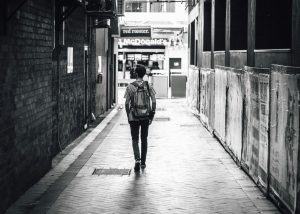Recent figures indicate that Australia is currently housing a record number of people on the Working Holiday Maker visa: 213,400 at the end of November. These figures are an indication of Australia’s status as a lifestyle superpower capable of attracting young people, but also present Australia an opportunity to harness these people’s talents to inject some dynamism into its under-achieving creative economy.
The Working Holiday Maker visa is available to young people from western and northern Europe, east Asia, and Canada. These new figures include 47,000 British, 23,700 French, 21,800 Irish, 14,800 Japanese, 13.400 Taiwanese, 13,200 Italians, and 12,700 South Koreans.
The visa’s initial purpose is to provide young people the opportunity to work in Australia for a year, to experience Australian life, and return home with a positive vision of the country. It is often referred to as the “backpacker visa.” The expectation is that people would use it to travel around the country and work periodically to fund their travels.
However, in recent years the visa’s intent has shifted. Due to Australia’s labor shortages in its agricultural industries, the Australian government has offered second and third one-year visas if people perform 88 days of work in a rural setting. The extended period of time in the country also presented opportunities for these people to find paths to permanent migration.
This is why the designation — “backpacker visa” — is misleading. Many people who secure the visa are not simply looking to travel around the country and have a beer on every beach. They see it as an opportunity to find a place for themselves in Melbourne or Sydney, advance their careers, and build a new life.
This is evident in the age brackets that the visa allows for. For most countries, this is between 18-30 years of age. However, for the British, Irish, French and Canadians the bracket extends to 35. And from July this year, the British had the provision of rural work removed as a condition of obtaining a second and third one-year visa.
Many of those obtaining the Working Holiday Maker visa in their mid-20s and into their 30s have finished studying, have considerable skills and a strong vision for what they want to be doing with their lives. For Australia, this is an overwhelmingly positive phenomenon. With low birth rates, and a regular skilled-migration visa program whose median age is 37 upon obtainment, the opportunity to inject greater youth and vitality into the country, the culture, and the economy is vital.
Australia’s problem with its lack of economic complexity is fundamentally a cultural one. In 2012 the Australian government created the Business Innovation and Investment Program with the hope of attracting singular geniuses who could provide the innovation the country requires. In July, the visa was discontinued as a failed scheme. No top-down solution exists for this problem. It needs to be addressed from the ground up.
The Working Holiday Maker program is one critical component to build this required culture. People who obtain the visa are those with the confidence to move outside the comfort of their home countries and seek adventure and opportunities abroad. They demonstrate initiative and the ability to adapt. They are thinking strategically about their lives and how to leverage opportunity. It is the kind of the thinking that Australia needs to embody wholesale.
It is why Australia should see the program as a vital tool of national strategy, and in an approach of realpolitik capitalize on the current adverse conditions in countries with which Australia has Working Holiday Maker agreements. The general malaise and sinking ship of the U.K., political instability in France and Germany, the uncertain future of Taiwan, and the intense social competition and labor demands of South Korea, all provide Australia with an opportunity to vacuum out highly educated young people. Australia offers a sanctuary, a place where – despite the boorish huffing from loudmouth local commentators – the future is much brighter.
Australia should not see its status as a lifestyle superpower as an end in itself. It needs to harness this tool to enhance its overall national power. However, for this to occur, the Australian government will need to alter its thinking and stop seeing the Working Holiday Maker visa as simply a “backpackers visa,” or a tool to ease agricultural labor shortages, and start seeing it as part of an innovation strategy.

































